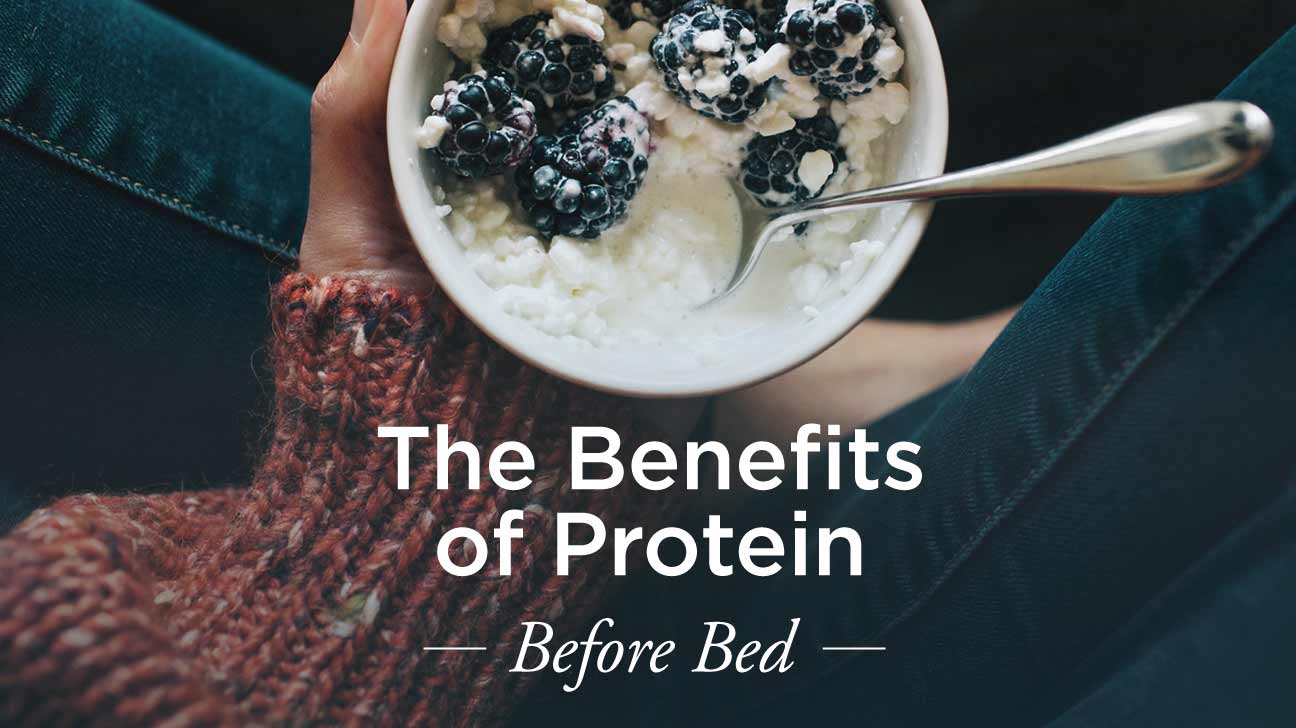For years we have been fed (ironically) the gossip that eating before bed automatically makes us gain weight and is bad for our health. In some cases, this has been found to be true, but in others, not. Here is a quick look at what the science says.
Does eating late mean gaining weight?
Not necessarily. If you eat still within your daily energy requirements (i.e. maintenance), you will likely stay around the same weight. Just because you ate at night does not mean you will magically gain three pounds of fat overnight.
If you overate with regards to your daily needs – no matter what, how, when, where – you will gain weight (a positive energy balance or caloric surplus). Eating at night can become a problem if you overeat or binge before bed. Night-time is associated with rest.
Our circadian rhythm that regulates sleep and physiological function (also known as your ‘body clock’) helps us ‘wind down’ before being lulled into a deep sleep. It is fair to say that you would not expend as much energy here as if you were just getting back to manual labour or exercising after lunch. The potential danger lies here.
A combination of bingeing on Netflix boxsets and snacks or takeaways brings about the same principle – eating too much and don’t use the energy is a recipe for weight gain. It is, however, important to eat enough – a deficit could disturb sleep.
Potential Benefits of Bedtime Bites
On the flip side, eating before bed is ideal in some cases. Sleep is our natural recovery and recuperation phase. We consolidate memory, learning, cognition to name but a few (Carrier, 2014). Getting a good night’s sleep is probably just as important as what you eat, isn’t it?
For an athlete undertaking intense training, pre-sleep protein ingestion increases muscle protein synthesis overnight, potentially improving recovery and adaptation (Trommelen & VanLoon, 2016).
This could be as simple as a 150-calorie snack just before bed. Cottage cheese, milk, yogurt – options aplenty. Dairy is generally casein-rich; a slow-releasing protein.

A visual representation of the effects of protein ingestion on MPS throughout the day and before sleep.
Carbohydrate intake before bed may help you doze off; particularly high-glycemic carbohydrate such as white rice and potatoes. Halson (2014) summarised the somewhat inconclusive yet interesting literature and provided nutrition strategies you could use to promote sleep:
- High GI foods may encourage sleep; but should be consumed >1 h before bed.
- Diets high in carbohydrate may result in shorter sleep latencies (time to fall asleep).
- High-protein might improve sleep quality.
- Diets high in fat could influence total sleep time negatively.
- When total caloric intake is decreased, sleep quality may be disturbed. Small doses of tryptophan (1 g) may improve both sleep latency and quality e.g. 300 g of turkey or 200 g of pumpkin seeds.
- The hormone melatonin and foods that have a high melatonin concentration may decrease sleep onset time e.g. tart cherries.
- Subjective sleep quality may be improved with the ingestion of the herb valerian; however, as with all supplements, athletes should be aware of potential contaminants as well as the inadvertent risk of a positive drug test.
Remember to eat enough, eat well, and embrace sleep. Weigh up the evidence and, as always, assess the risk, need, and consequences before making any decision. Happy sleeping!
How much protein do I need? Check out the Youth Sport Nutrition protein calculator.
What are Youth Sport Nutrition products?
We created the world’s first food powder shake tailored specifically to active youths. Not only is it a great source of protein, but each shake also contains a specific blend of fats, carbs and 16 essential micronutrients to ensure athletes get everything their body needs to perform and its best. NUTRI-TEEN Shakes are specifically designed to cater to the nutritional needs of active youths, this food powder can help fill in any dietary gaps, providing the high-quality protein that's crucial for muscle recovery and growth.
Available in several kid-approved flavours, these food powder shakes offer a quick, easy, and tasty way to boost your child's protein intake. What sets NUTRI-TEEN shakes apart is their focus on supporting youths during their vital growth and development phases, as well as facilitating recovery.
Please remember, these food powder shakes are not meant to replace a balanced diet of whole foods. Instead, they're designed to complement it, particularly when your child's dietary needs are heightened due to intense training sessions. If ensuring adequate protein through food alone is proving difficult, consider adding YSN NUTRI-TEEN shakes to your young athlete's nutritional plan for that added support.
If you want any help with designing a food-first meal plan, you can speak to our nutrition team today.
Disclaimer: This article is intended to provide general information about nutrition for youth athletes and is not meant to replace professional dietary advice or individual nutritional counselling. Every child's nutritional needs can vary due to factors such as age, size, physical activity level, and medical conditions. We strongly recommend consulting with a registered dietitian or a healthcare provider before making changes to your child's diet, such as adding food powders. YSN and the author of this article do not take responsibility for any possible consequences from any treatment, procedure, dietary modification, action, or application of medication which results from reading or following the information contained in this article.
Author Liam Oliver (subsequently re-edited by Youth Sport Nutrition).
References
Carrier, J. (2014). The role of sleep and circadian rhythms in health: A snapshot of key research interrogations. Pathologie Biologie, 62(5), 231-232.
Halson, S. (2014). Sleep in elite athletes and nutritional interventions to enhance sleep. Sports Med, 44 (Suppl 1):S13–S23. doi: 10.1007/s40279-014-0147-0
Trommelen, J., & VanLoon, L. J. C. (2016). Pre-sleep protein ingestion to improve the skeletal muscle adaptive response to exercise training. Nutrients, 8(12), 763. doi:http://dx.doi.org.lcproxy.shu.ac.uk/10.3390/nu8120763


Leave a comment